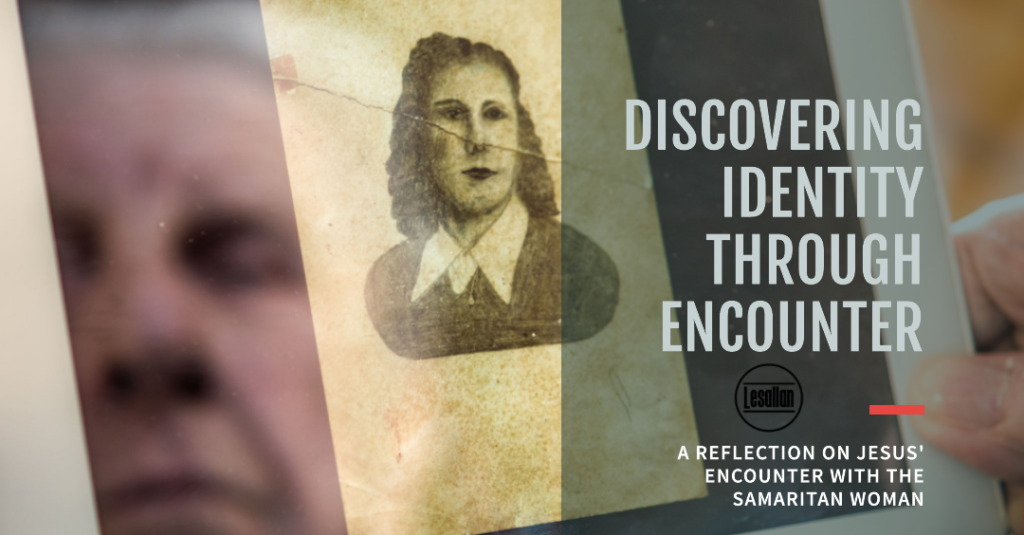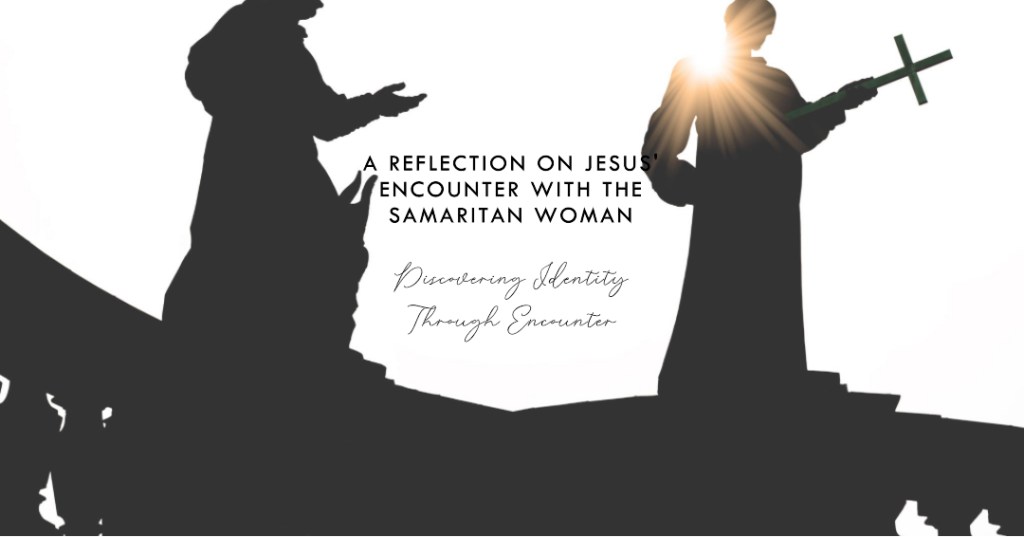
Jesus knew who He was; it took a woman at the well before He went Public.
One of the most remarkable stories in the Gospel of John is the encounter between Jesus and the Samaritan woman at the well. In this story, we see how Jesus revealed his true identity as the Messiah and the Son of God to a woman who was considered an outcast and a sinner by the Jews. This radical act of grace and love showed how Jesus came to save all people, regardless of their background, ethnicity, gender, or morality.
The story begins with Jesus traveling through Samaria, a region that the Jews despised because of its mixed population and history of idolatry. Jews usually avoided going through Samaria, but Jesus chose to go there because he had a divine appointment with the woman at the well. He arrived at noon when the sun was hot, and most stayed indoors. He sat by the well and asked the woman for water.
The woman was surprised that a Jewish man would speak to her, let alone ask her for water. She said, “You are a Jew, and I am a Samaritan woman. How can you ask me for a drink?” (John 4:9). Jesus answered, “If you knew the gift of God and who it is that asks you for a drink, you would have asked him and he would have given you living water” (John 4:10).
Jesus was not talking about physical water but the spiritual water that gives eternal life. He offered her a relationship with God to satisfy her deepest thirst and fill her with joy and peace. He was also hinting at his own identity as the source of this living water, as he later declared, “Whoever believes in me, as Scripture has said, rivers of living water will flow from within them” (John 7:38).
The woman did not understand what Jesus was saying. She thought he was talking about a natural spring or a well that never ran dry. She said, “Sir, you have nothing to draw with and the well is deep. Where can you get this living water? Are you greater than our father Jacob, who gave us the well and drank from it himself, as did also his sons and his livestock?” (John 4:11-12).
Jesus replied, “Everyone who drinks this water will be thirsty again, but whoever drinks the water I give them will never thirst. Indeed, the water I give them will become in them a spring of water welling up to eternal life” (John 4:13-14).
Jesus contrasted physical water’s temporary satisfaction with spiritual water’s permanent satisfaction. He also claimed to be greater than Jacob, the patriarch of Israel and Samaria, who dug the well. He implied that he fulfilled God’s promises to Jacob and his descendants, who were waiting for the Messiah to come.
The woman still did not grasp what Jesus was offering her. She said, “Sir, give me this water so that I won’t get thirsty and have to keep coming here to draw water” (John 4:15). She wanted to avoid the hassle and the shame of coming to the well every day, especially at noon when no one else was there.
Jesus then exposed her true condition and need. He said, “Go, call your husband and come back” (John 4:16). The woman answered, “I have no husband” (John 4:17). Jesus said, “You are right when you say you have no husband. The fact is, you have had five husbands, and the man you now have is not your husband. What you have just said is quite true” (John 4:17-18).
Jesus knew everything about her life and her sins. He knew she had been married five times and was now living with a man who was not her husband. He knew she was looking for love and happiness in all the wrong places. He knew that she was empty and broken inside.
But he did not condemn her or judge her. He did not reject her or avoid her. He did not shame her or mock her. He loved her and accepted her. He spoke to her with compassion and respect. He revealed to her his grace and truth.
The woman was amazed that Jesus knew everything about her. She said, “Sir, I can see that you are a prophet” (John 4:19). She then asked him a question about worship: “Our ancestors worshiped on this mountain, but you Jews claim that the place where we must worship is in Jerusalem” (John 4:20).
She was referring to the long-standing dispute between the Jews and the Samaritans over where God should be worshiped. The Samaritans believed that Mount Gerizim was the true place of worship, where Abraham had built an altar to God, and Joshua had renewed the covenant with God. Jesus had a clear sense of His identity but waited for the right moment to reveal it. He chose a Samaritan woman at a well as His first witness, breaking the social and religious barriers of His time.
Who Was Jesus? The Surprising Answer from a Samaritan Woman, the woman at the well:
Many people have different opinions about who Jesus was and what He came to do. Some say He was a great teacher, a prophet, a miracle worker, or even a revolutionary. But what did Jesus say about Himself? How did He reveal His true identity to the world?
One of the Bible’s most remarkable stories is how Jesus disclosed His identity for the first time. He did not announce it to the crowds, the religious leaders, or even His closest disciples. Instead, He revealed it to a Samaritan woman at a well in a conversation that changed her life and salvation history.
Why is this story so surprising and significant? To understand that, we need to know some background information about the Samaritans and their relationship with the Jews.
The Samaritans were a mixed race of people who lived in the region of Samaria, between Judea and Galilee. They were descendants of the Israelites who had intermarried with the foreign nations that conquered them. The Jews considered them as impure and unfaithful to the law of Moses. They also had their own version of the Torah and their own place of worship on Mount Gerizim. The Jews and the Samaritans hated each other and avoided any contact or interaction.
Jesus, however, did not follow the norms and prejudices of His culture. He deliberately traveled through Samaria and stopped at a well near the town of Sychar. There He met a Samaritan woman who came to draw water around noon, when no one else was there. She was probably an outcast in her own society, as she had been married five times and was living with a man who was not her husband.
Jesus broke all the barriers by asking her for a drink. He initiated a dialogue that went from the natural to the spiritual, from the physical water to the living water that He could give. He offered her a gift that she did not understand at first: the gift of eternal life.
He also showed her that He knew everything about her past and present life. He exposed her sin, not to condemn her, but to lead her to repentance and faith. He revealed to her that He was not just a Jew but the Messiah, the world’s Savior.
The woman was astonished and amazed by His words. She left her water jar and returned to the town to tell everyone about Him. She became the first evangelist, the first witness to His identity. Many Samaritans believed in Him because of her testimony and came to see Him for themselves.
Jesus stayed with them for two days and taught them more about His mission and kingdom. They also recognized Him as the Messiah and said to the woman: “We no longer believe just because of what you said, now we have heard for ourselves, and we know that this man is the Savior of the world.” (John 4:42)
This story shows us how Jesus clearly understood His identity but waited for the right moment to reveal it. He chose a Samaritan woman at a well as His first witness, breaking the social and religious barriers of His time. He showed us that He came for everyone, regardless of race, gender, or status. He showed us that He knows us intimately, loves us unconditionally and offers us grace freely.
Who do you say Jesus is? Have you encountered Him personally? Have you received His living water? Have you shared your testimony with others? If you want to know more about Jesus and His identity, please contact me or leave a comment below.
In Christ,
LesAllan


